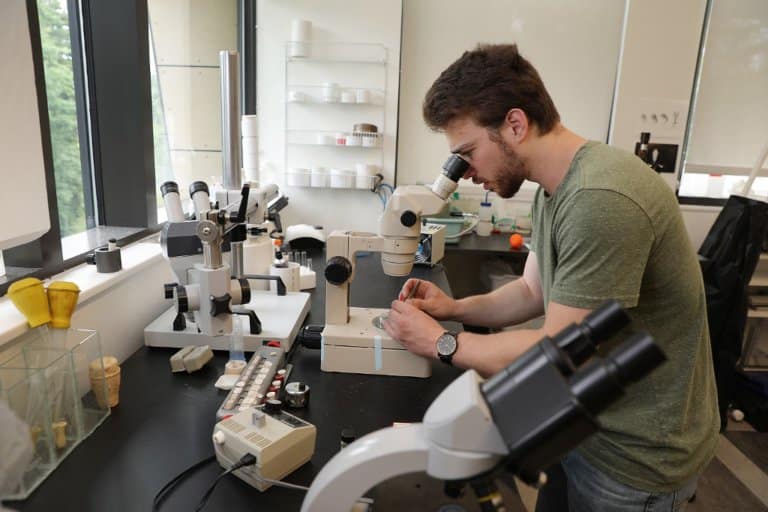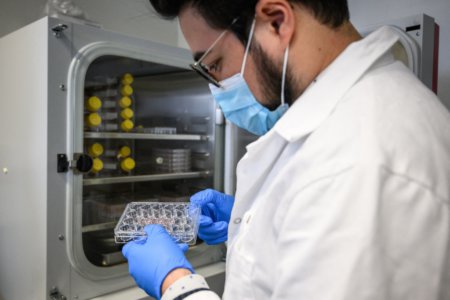
Becoming a PhD student is no easy feat — even more so if you are an international student.
During this period, you are a researcher. Imagine being responsible for forming your hypotheses and defending them in front of your supervisor or peers.
This can be a drastic change of pace from studying for your bachelor’s or master’s degree — which is more passive and comes with less accountability.
What’s more, you might not have time for your friends, family or even yourself. Instead, you’ll meet with supervisors, craft your PhD research proposal and interview people. You can expect to write a lot — and to meet the deadlines that come with it.
It’s a huge commitment, so knowing what to expect can help you adapt to this change. Don’t worry, though, as we will guide you through all you should know before starting your PhD:

Starting your PhD with the right expectation and mentality can help you put your best foot forward. Source: David Ryder/Getty Images North America/Getty Images/AFP
What does PhD mean?
A PhD, or Doctor of Philosophy, is the highest possible academic degree you can obtain as a student once you submit a thesis or dissertation.
These are academic papers that you write based on extensive and original research done in a chosen field.
On average, it can take you up to eight years to complete your PhD. This will change according to the programme, the subjects you’ve picked and the university offering the programme.
What does PhD stand for?
PhD is short for (Ph)ilosophiae (D)octor in Latin. The word “philosophy” comes from the Ancient Greek philosophia, literally translated as “love of wisdom.”
Are PhD students doctors?
You are entitled to use the title “Dr.” once you graduate with a PhD.
They are different from the doctors you see in the hospitals as PhD graduates as social and physical scientists who have conducted and evaluated published research.
Do PhD students get paid?
Yes. They receive a salary, which is also known as a stipend. A higher stipend can help you to cope with an increased cost of living.
Currently, the average cost of living is around 1,000 to 1,600 pounds per month, including rent. This range can change depending on your lifestyle and whether you are staying with a friend.
The increasing cost of living, however, have pushed stipends below the living wage, The Guardian reported.
This has resulted in some candidates struggling to pay rent and forcing them to work part-time jobs.
In June 2022, UK Research and Innovation (UKRI) announced that the minimum stipend for UKRI-supported students is due to increase by 2.9% for the 2022-23 academic year.
4 things to consider before studying abroad as a PhD student
1. Choosing your research topic
We get it: you want to write something impactful that you can bring forward in your career. It’s normal to feel stuck when thinking about a research topic.
Lucky for you, there are many ways to be inspired. You can start by attending conferences.
Even if you don’t have a paper to present, these events can help you source research ideas and connect with experts in the field.
Linkedin is a great alternative, too. Some faculty members share bits of their research topics on the platform. Try typing “#researchtopic” in the search bar and you will be able to filter through the relevant post.
2. Applying for the right student visa
Give yourself ample time to apply for your student visa. We recommend that you read up on how to apply for an F-1 or Tier 4 student visa if you plan to do your PhD in the US and UK, respectively.
This handy step is crucial to help you avoid any visa delays that can jeopardise your study plans.
One student had his offer to pursue a PhD programme at a Canadian uni withdrawn after being forced to defer his admission for a third time.
At the time, he had been waiting for his Canadian student visa to come through for 18 months.
Generally, most international students would require a student visa to do their PhD. Do check if there is an agreement between countries that allow citizens to move freely between them.
For example, a PhD student from New Zealand will not need a student visa to study in Australia.

As a PhD student, you will teach or become a research assistant. Most unis will pay you for this work in the form of stipends. Source: Tolga Akmen/AFP
3. Look for scholarships and financial aids
Lucky for you, there are scholarships for PhD students. Countries like the UK value a strong research culture, so it’s no surprise that many UK unis offer good scholarship packages that cover your cost of living plus an annual stipend or maintenance grant.
Some scholarships even offer you an allowance.
Those studying for their PhD in the US can consider applying for financial aid.
4. Know how to protect your mental health as a PhD student
Mental health among PhD students is poor, according to a survey done on postgraduate students in the UK.
As a PhD student, it can often feel like your wellbeing is slipping away.
Whenever this happens, feel free to reach out to your supervisor.
Aditi Paul wasn’t afraid to do this while pursuing her PhD at Bowling Green State University.
“I took a course on statistics for social science. Since it was my first time studying the topic, I would visit my professor during office hours every week,” Paul shares.
“Here, I would ask for more clarification of my weekly assignments to ensure I was on the right track.”
You can also talk to a friend or walk into your uni’s wellbeing office if you feel overwhelmed.
Use an on-campus mental health service, such as counselling, if you need professional help.
Always remember that there is always someone you can talk to on or off campus.
You can also listen to mental health podcasts or download apps like Headspace to relax your mind.











